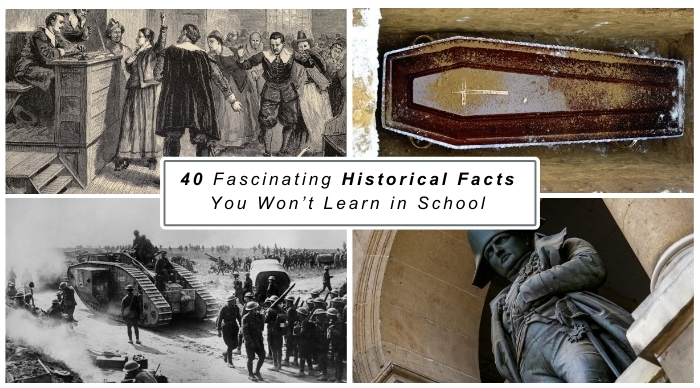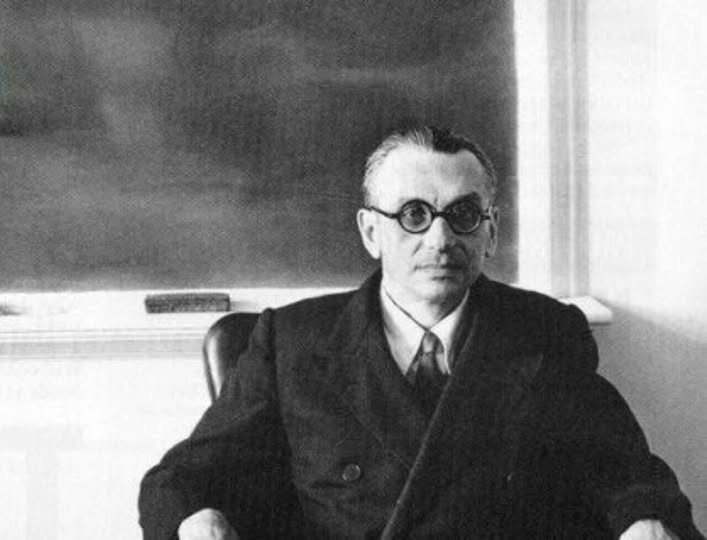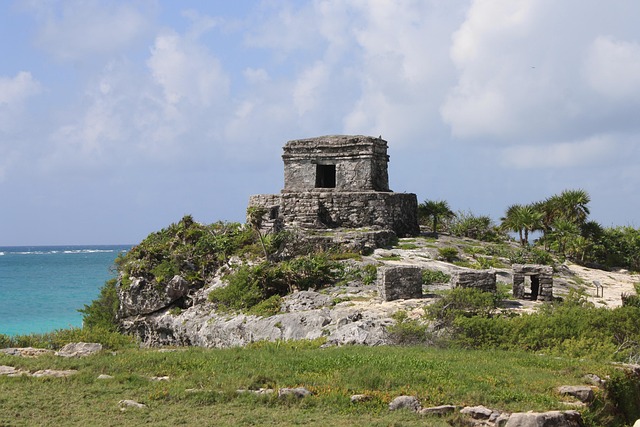40 Fascinating Historical Facts You Won’t Learn in School
19. The Shortest War in History
Who knew that war could be so fast? As much as we associate wars with protracted combat, there was at least one that swept across the world in precisely 38 minutes. Yes, you heard that correctly the Anglo-Zanzibar War on Aug. 27, 1896. It all began over a disagreement about who should be Sultan of Zanzibar. When the previous pro-British sultan died, the British had no use for the new guy, so they put the squeeze on him to step aside. But rather than acquiesce, the new sultan barricaded himself inside his palace, and the British bombed him into submission.
You can imagine the absurdity of this 38 minutes and that was that. The defenders on Zanzibar didn’t stand a chance they were outgunned, outmatched. The palace flag was shot down, and just like that, the shortest war in history was over. Isn’t it crazy to say that a whole war could occur in less time than it takes to watch a sitcom?
It’s a really strange episode in history, you know? The concept of an empire going to war over such a minor disagreement, then having the war end before it even started. Sounds more like sending a message than anything, doesn’t it?
20. Effect Of The Black Cat Extermination
Here’s a weird one from the history books that papal order to eliminate black cats in the Middle Ages may have actually made things worse. Pope Gregory IX declared black cats the devil’s creatures, leading to their destruction by the thousands. But what was the unintended consequence of this? With no cats around to curtail the rat population, the rats flourished, and the Black Plague spread that much more.
It’s almost like a kind of strange historical irony. The Pope’s well-intentioned campaign against evil creatures helped worsen one of the most lethal pandemics in human history. Funny how something so basic and simple could have such a vast influence, huh? Imagine a world where you’re trying to destroy evil but only succeed in making things worse.
Even if there’s some question of exactly how much the killing of felines really helped catalyze the Black Death, it’s telling that the absence of a handful of fur-covered hunters could have had such a large role in history. Who would have ever thought something so strange could be linked to such a terrible tragedy?
21. Tristan Thompson’s Boring Scandal
Okay, when we think of scandalous cheating exploits, we often look to celebrities of today, right? But Sultan Ibrahim I of the Ottoman Empire’s affair drama takes the cake. This guy had a harem of 280 concubines (yes, 280!), but when one supposedly stepped out of line, he commanded that the whole harem be thrown into the Bosphorus Sea. All of these 280 women gone though one woman is said to have had an affair with another woman.
The mind boggles, right? Just imagine the absolute madness of demanding that many individuals be executed for one mistake. It’s a tragic case study of how the powerful are often bred on paranoia. Ibrahim I was politically insane and plagued by panic attacks that left him paranoid and anxious, creating a volatile world of fear for those around him.
But what’s even wilder is that the lady in question perhaps never even did anything wrong. Now imagine being one of those women, understanding that in a single word your life could be over. It really causes you to consider just how devastating and precarious unbridled power can be.
22. The Living Alarm Clock
Nowadays, it’s hard to imagine life without an alarm clock, but there was a time when real people had a job to wake you up. These “knocker-ups” would wait outside your window in the early morn and bang or shoot literal pea shooters at your window until you awakened. No snooze button, no silent alarms just a loud, determined human knocking at your window.
Can you imagine that? You’re sleeping, and instead of a beep or buzz, you have someone banging at your window with a stick. When you think about it, it’s pretty funny someone’s job was to make sure you got out of bed in the morning. They were actually paid for this. It’s the worst (or best?) wake-up call ever.
The wild part? They were cheaper than purchasing a true alarm clock, so people who couldn’t shell out for the technology would hire a knocker-up instead. I wonder would you have liked this way of waking up, or would you rather stick to a modern alarm clock?
23. The Dwarf Who Became a Giant
Can you imagine that you were living your whole life believing that you were never going to grow any taller than a few feet, then one day you started to sprout and you soon found yourself almost seven feet tall? The story of Adam Rainer is one of those incredible tales that would seem to leap from the page of a work of science fiction. At 19, he stood only 3 feet 7.9 inches tall hardly average height. But then out of the blue, a tumor on his pituitary gland altered the course of his life. Can you imagine going to bed one night a little person and then waking up the next morning towering over everyone? That’s precisely what happened to him and people were scratching their heads in disbelief.
Now, the funny thing is that not only did his height grow by leaps and bounds, but along with his height came declining health issues in the years after his growth spurt. Picture being struck with a rapid growth spurt at an age when most peoples’ growth plates have already closed now that’s a body that just can’t keep up.
So, as luck would have it with a giant’s stature, that was actually a curse, not a blessing. He was largely bedridden in his later years because of the effects of gigantism. Maybe an odd and tragic twist, don’t you think? How could what seemed at first to be so extraordinary become so debilitating?
24. Ronald Reagan-The Lifeguard of Life
You probably know Ronald Reagan as a President of the United States (the 40th, in fact), but did you know that before he entered politics, he was an amazing lifeguard? Picture him in a lifeguard stand, whistle around his neck, saving lives instead of delivering soliloquies? I didn’t know that about him until fairly recently and it really changes the way you look at him, honestly. Reagan lifeguarded at Lowell Park in Illinois for seven summers and rescued 77 people. That’s impressive, right? But what made him so very good at it? Was it his ambidextrous athleticism, his innate attention to detail, or simply his animalistic instincts?
Just think about it 77 lives saved isn’t nothing. You could practically see him springing into action, the whistle blowing, and moments later, someone’s life being saved. What do you think he was thinking when he was pulling someone to safety? Not something we really think of when it comes to a Hollywood star-turned-politician, but shows Reagan was not just a man of words, in fact, he a man of action. What president can say they’ve saved lives beyond politics?
25. When Lack of Sleep Leads to Disaster
Everyone knows how awful it feels to miss sleep, but what you might not know is that it’s been connected to some of the biggest disasters in history. Consider the Chernobyl explosion, the Challenger disaster, the Exxon Valdez oil spill. They all had one commonality sleep deprivation. It’s crazy, right? Those engineers working that night in Chernobyl had been working exhausting 13+ hour shifts with little or no rest. Do you think that contributed to the chain of mistakes that led to something so horrible? What if they’d just gotten some sleep beforehand? Would the result have been different?
Then there’s, of course, the Challenger disaster. For example, they happened to know that the people who managed the shuttle launch had only slept for two hours last night. Two hours! Now imagine having to make decisions that might touch the lives of millions, while that sleep-deprived. It’s mind-blowing, isn’t it?
Don’t even get me started on the Exxon Valdez spill. The third mate fell asleep on the wheel, and the rest is history. We often hear of accidents caused by fatigue. It’s so easy to believe we can power through on little shut-eye, but those examples demonstrate how perilous it can be.
26. The Genius Who Starved Himself
The genius Kurt Gödel who was a paranoid and believed that everyone else was trying to poison him. He was so afraid that he would only eat food that had been cooked for him by his wife. When she fell ill and couldn’t cook, Gödel refused to eat at all, and his health declined.
His self-starvation led to severe malnutrition, and Gödel died at the age of 71 weighing only 65 pounds. It’s devastating that his incredible brain was able to save him from so much pain and suffering but couldn’t save him from the mental anguish that eventually brought down his body.
Gödel’s story raises questions like, How powerful is the mind? However, when fear takes the front seat is there any control left with us? His own tragic demise shows the hidden impact of mental illness on our handles on both mind and body.
27. Before The Invention of the Safety Coffin
Nobody wanted to be buried alive, a real fear before the age of modern medicine. Sometimes people were presumed dead but were merely unconscious or comatose, resulting in accidental burials. To avoid that, inventors came up with “safety coffins,” which were equipped with bells or signaling systems to notify the outside world if someone was still alive. It’s hard to believe something like that ever existed.
The original question scared of being buried alive, how come? Was it simply a fear of death, or did the frequency of these accidental burials lead people to take action? Until recently, the possibility of wondering whether somebody was even really gone must have made death a much worse fear; it must have been a horrific thing to know that one might not even know what had befallen one.
So, suppose you are put into one of these “safety coffins.” Would you stay relaxed, praying that someone will hear your bell, or would you start panicking and try to get out of there? That’s disturbing to contemplate and yet, it would have been a very real concern in centuries past. This invention born of fear makes you wonder how many ideas come from anxiety rather than need, this demonstrates how much our perception of life and death has changed.














